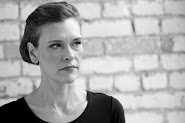 Fiction International is "the only literary journal in the United States emphasizing formal innovation and progressive politics. [Its] thematic issues feature controversial fiction, nonfiction, indeterminate prose, and visuals by leading writers and artists from around the world."
Fiction International is "the only literary journal in the United States emphasizing formal innovation and progressive politics. [Its] thematic issues feature controversial fiction, nonfiction, indeterminate prose, and visuals by leading writers and artists from around the world."Fiction International is sponsoring its next theme issue on animals. The deadline for submissions was December 15. Even though I had written nothing about animals that I could send to the journal, the idea gives me the spur to write about my cats and their life experiences.
 Francis was a good, gray, wool cat whose father was likely Himalayan, which accounts for the way he strutted the barriers of the yard, walking on fences and edges, as if he had read the deed. Fran died on March 31, 2005 at the age of nearly 16. His birthday was May 8, 1989. We still miss him and end up lavishing too much motherly attention on his successor, Walter (Wally), whom we picked at the Humane Society on January 22, 2006, almost one year ago. Wally's papers indicate that he was 8 months at the time of adoption, placing his birthday some time in May 2005.
Francis was a good, gray, wool cat whose father was likely Himalayan, which accounts for the way he strutted the barriers of the yard, walking on fences and edges, as if he had read the deed. Fran died on March 31, 2005 at the age of nearly 16. His birthday was May 8, 1989. We still miss him and end up lavishing too much motherly attention on his successor, Walter (Wally), whom we picked at the Humane Society on January 22, 2006, almost one year ago. Wally's papers indicate that he was 8 months at the time of adoption, placing his birthday some time in May 2005.















